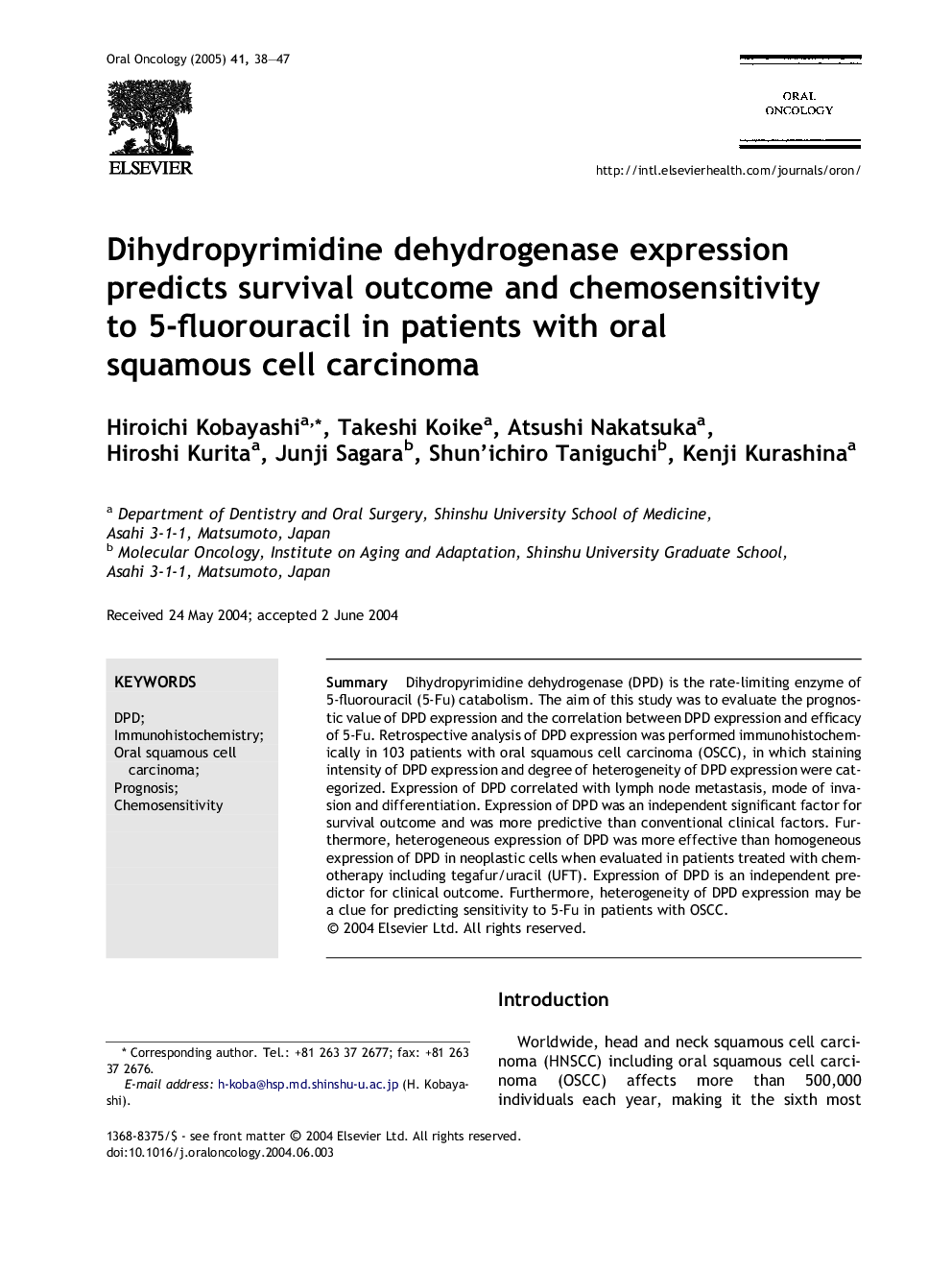| Article ID | Journal | Published Year | Pages | File Type |
|---|---|---|---|---|
| 9216753 | Oral Oncology | 2005 | 10 Pages |
Abstract
Dihydropyrimidine dehydrogenase (DPD) is the rate-limiting enzyme of 5-fluorouracil (5-Fu) catabolism. The aim of this study was to evaluate the prognostic value of DPD expression and the correlation between DPD expression and efficacy of 5-Fu. Retrospective analysis of DPD expression was performed immunohistochemically in 103 patients with oral squamous cell carcinoma (OSCC), in which staining intensity of DPD expression and degree of heterogeneity of DPD expression were categorized. Expression of DPD correlated with lymph node metastasis, mode of invasion and differentiation. Expression of DPD was an independent significant factor for survival outcome and was more predictive than conventional clinical factors. Furthermore, heterogeneous expression of DPD was more effective than homogeneous expression of DPD in neoplastic cells when evaluated in patients treated with chemotherapy including tegafur/uracil (UFT). Expression of DPD is an independent predictor for clinical outcome. Furthermore, heterogeneity of DPD expression may be a clue for predicting sensitivity to 5-Fu in patients with OSCC.
Related Topics
Health Sciences
Medicine and Dentistry
Dentistry, Oral Surgery and Medicine
Authors
Hiroichi Kobayashi, Takeshi Koike, Atsushi Nakatsuka, Hiroshi Kurita, Junji Sagara, Shun'ichiro Taniguchi, Kenji Kurashina,
